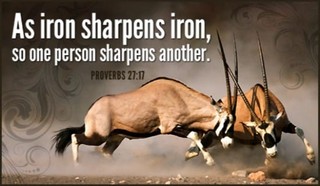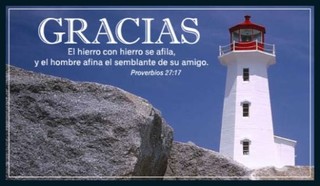
- Recent Translations
- All Translations
Proverbs 27:1
Share
Settings
Proverbs 27:1 Meaning and Commentary
Boast not thyself of tomorrow
Or, "of tomorrow day" F20. Either of having a tomorrow, or of any future time; no man can assure himself of more than the present time; for, however desirable long life is, none can be certain of it; so says the poet F21: for though there is a common term of man's life, threescore years and ten, yet no one can be sure of arriving to it; and, though there may be a human probability of long life, in some persons of hale and strong constitutions, yet there is no certainty, since life is so frail a thing; the breath of man is in his nostrils, which is soon and easily stopped; his life is but as a vapour, which appears for a little while, and then vanishes away; all flesh is as grass, which in the morning flourishes, in the evening is cut down, and on the morrow is cast into the oven: man is like a flower, gay and beautiful for a season, but a wind, an easterly blasting wind, passes over it, and it is gone; his days are as a shadow that declineth towards the evening; they are as a hand's breadth; yea, his age is as nothing before the Lord. Death is certain to all men, as the fruit of sin, by the appointment of God; and there is a certain time fixed for it, which cannot be exceeded; but of that day and hour no man knows; and therefore cannot boast of a moment of future time, or of a tomorrow, nor of what he shall enjoy on the morrow F23; for, what he has today he cannot be certain he shall have the next; he cannot assure himself of health and honour, of pleasures, riches, and friends; he may have health today, and sickness tomorrow; be in honour today, and in disgrace on the morrow: he may bid his soul eat, drink, and be merry, seeing he has much goods laid up for many years, and vainly say, tomorrow shall be as this day, and much more abundant, when this night his soul may be required of him; he may have his wife and children, friends and relations, about him now, and before another day comes be stripped of them all; he may be in great affluence, and gave great substance for the present, and in a short time all may be taken from him, as Job's was; riches are uncertain things, they make themselves wings and flee away. Nor should a man boast of what he will do on the morrow; either in civil things, in trade and business; to which the Apostle James applies this passage, ( James 4:13-16 ) ; or in acts of charity, so Aben Ezra explains it, boast not of an alms deed to be done tomorrow; whatever a man finds to be his duty to do in this respect, he should do it at once, while he has an opportunity: or in things religious; as that he will repent of his sins, and amend his life on the morrow; that he will attend the means of grace, hear the Gospel, the voice of Christ; all which should be to day, and not be put off till tomorrow. Nor should true believers procrastinate the profession of their faith; nor should any duty, or exercise of religion, be postponed to another season; but men should work while it is day, and always abound in the work of the Lord, and be found so doing; see ( Isaiah 56:12 ) ( Luke 12:19 Luke 12:20 ) ;
for thou knowest not what a day may bring forth;
time is like a teeming woman, to which the allusion is, big with something; but what that is is not known till brought forth: as a woman, big with child, knows not what she shall bring forth till the time comes, whether a son or a daughter, a dead or a living child; so the events of time, or what is in the womb of time, are not known till brought forth; these are the secret things which belong to God, which he keeps in his own breast; the times and seasons of things are only in his power, ( Acts 1:6 ) . We know not what the present day, as the Targum renders it, will bring forth; and still less what tomorrow will do, what changes it will produce in our circumstances, in our bodies and in our minds; so that we cannot be certain what we shall be, what we shall have, or what we shall do, on the morrow, even provided we have one.
F20 (rxm Mwyb) "in die crastino", Pagninus, Montanus.
F21 Sophoclis Oedipus Colon. v. 560. "Nemo tam divos habuit faventes, erastinum ut possit sibi polliceri", Senco. Thyest. v. 617, 618.
F23 "Quid sit futurum eras, fuge quaerere", Horat. Carmin. l. 1. Ode 9.
